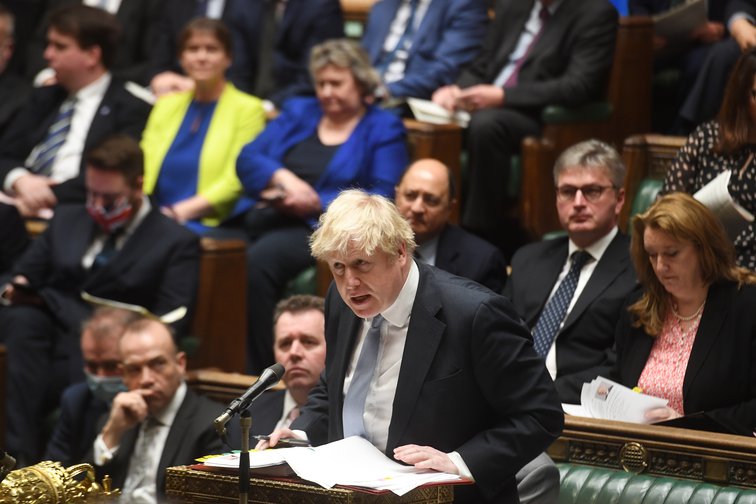National Insurance hike will make health and social care workers personally fund their own services to the tune of £390m
Adam Bychawski
9 February 2022

SNP's Westminster leader said that National Insurance rise is a regressive tax. |
UK Parliament/Jessica Taylor
Boris Johnson was today forced to defend cutting nurses' pay by hundreds of pounds in the name of a “health and social care levy”, after openDemocracy revealed the true cost to NHS staff.
Scottish National Party (SNP) Westminster leader Ian Blackford hauled the prime minister over the coals, saying the increased National Insurance contributions were a regressive tax that would worsen the cost of living crisis for low-paid health workers.
“Yesterday, openDemocracy found, as a direct result of the chancellor’s National Insurance hike, nurses will, on average, take a £275-a-year pay cut in April,” he said.
“That pay cut will hit at the very same moment that soaring energy bills land, bills that have shot up £1,000 in the space of a year. It is a bill that they and the rest of the public simply can’t afford,” he added.
Johnson responded by saying that the rise was necessary to clear the backlog in NHS waiting lists caused by the pandemic, but did not address calls for a more progressive tax to do so.
“We’ve increased the starting salary for nurses by 12.8% in addition to the bursaries and other help that we give them,” he said. “We value our nurses, we love our NHS and we are paying for it.”
Johnson was told last year by Donna Kinnair, the chief executive of the Royal College of Nursing (RNC), that his claim about higher nursing salaries was “not a statement which nursing staff will recognise”.
While some nurses have received a pay rise of more than 12% since 2017/18, that is only in cash terms. Nurses’ starting salaries are approximately 10% worse in real terms than they were in 2011/12, Channel 4 FactCheck found in March 2021.
The RNC has separately found that experienced nurses are 15.3% worse off in real terms than they were a decade ago.
Kinnair wrote to Johnson in January 2021 to ask the prime minister “to be accurate when discussing their pay” after he previously made the claim during Prime Minister’s Questions that same month.
Blackford said in response to Johnson today: “Actions speak louder than words and if he wants to reward the nurses then he needs to pay them. They are the very backbone of the National Health Service.”
Last year, English NHS staff received a 3% pay rise following an independent pay review. However, the lowest-paid NHS and social care staff – those earning £24,000 or less – will lose £66m in total from their pay cheques after April’s National Insurance hike, openDemocracy revealed on Tuesday.
Johnson told the House of Commons on Wednesday that the tax rise, which will be replaced by a formal ‘health and social care levy’ of the same value from 2023, would fund the health service, and help recruit 50,000 new nurses.
Nursing staff shortages are the health service’s “most urgent challenge”, according to the NHS. Last month, 14 unions warned that the NHS is facing a “growing exodus of exhausted staff” and called on the government to raise pay to retain staff.
No comments:
Post a Comment